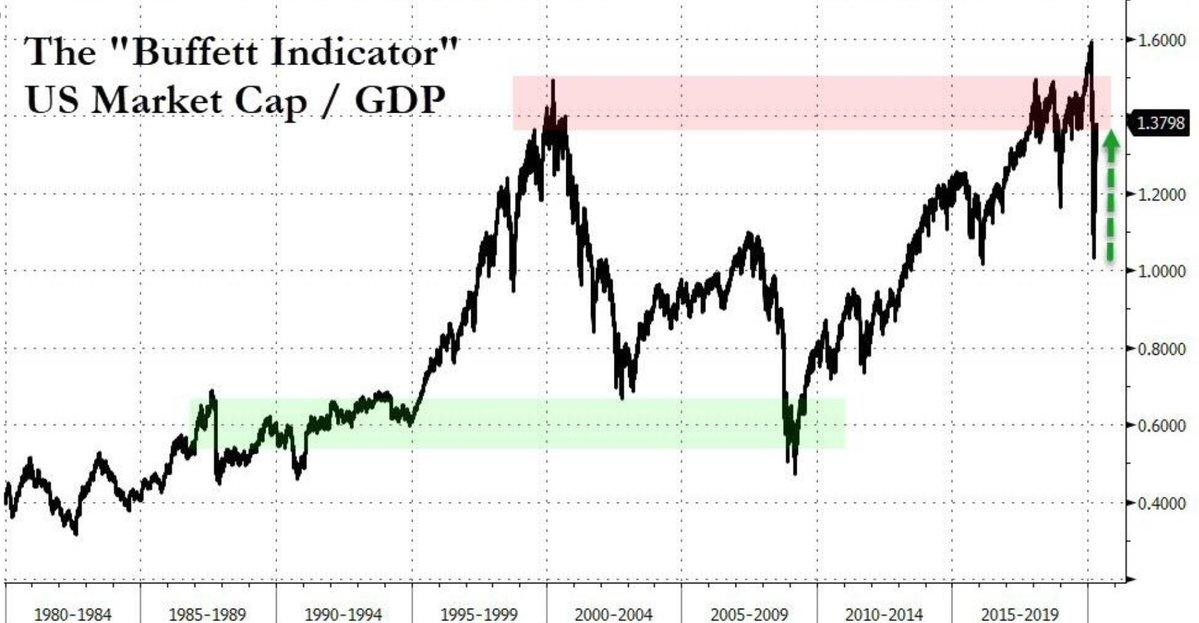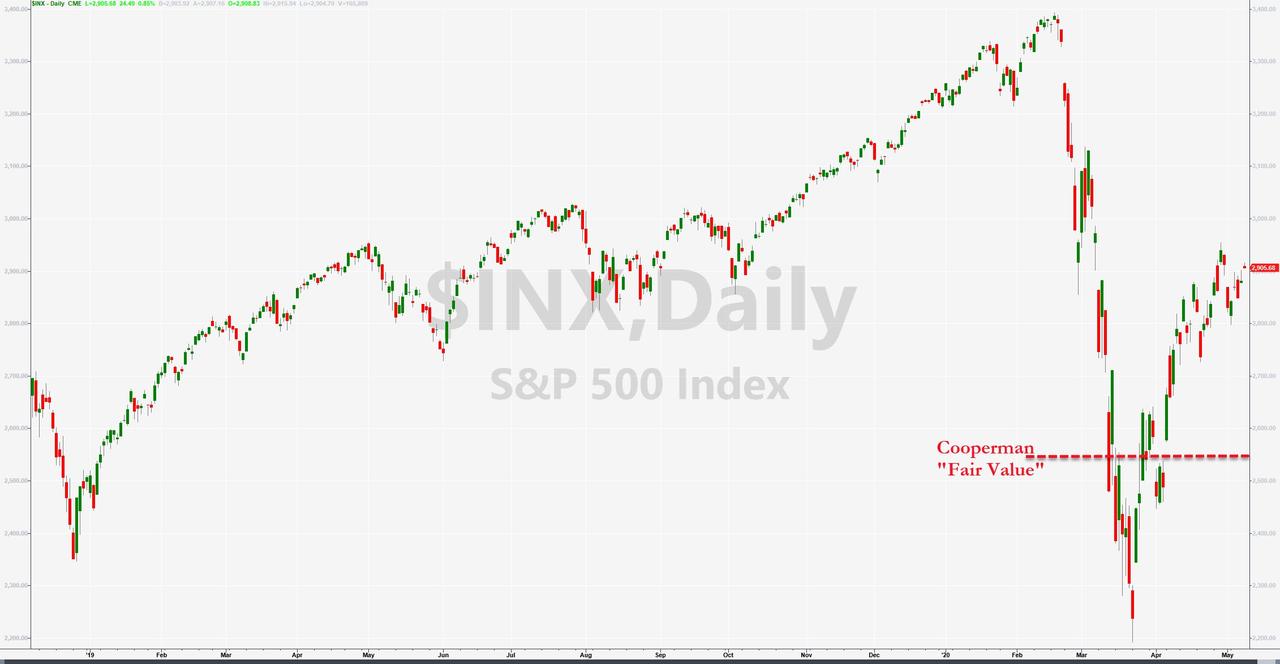Billionaire Cooperman's 11 Reasons To Be Skeptical Of Soaring Stocks Amid COVID Chaos
In an email this week, billionaire hedge fund manager Leon Cooperman detailed at least 11 reasons why he is concerned about the long-term implications of the coronavirus outbreak.

The Omega Advisors founder highlighted a number of negative consequences including stricter regulations, higher taxes, and slimmer corporate profits...
-
The unprecedented recent government stimulus and protections may have permanently increased the role government plays in the market, potentially increasing its regulatory oversight.
-
The U.S. is shifting to the left on the political spectrum, a trend that will likely result in higher taxes.
-
Low interest rates are a sign of an unhealthy economy, not a bullish stock market indicator.
-
U.S. debt is growing much faster then the economy, so a higher percentage of our national income will need to be devoted to debt servicing.
-
U.S. demand will likely be slow to recover given Americans will need some form of vaccination and/or proof of immunity to gain access to sporting events, concerts and other gatherings.
-
Businesses will need to shoulder substantial compliance costs to ensure worker safety.
-
Companies will need to issue a substantial amount of equity to replace lost capital.
-
Stock buybacks, and the support they provided to EPS, are mostly over.
-
U.S. profit margins were at a historic high in January, and they have historically reverted to their long-term mean over time.
-
Credit is cheaper than stocks, with high-yield bonds (excluding the energy sector) yielding 7.25%, or about 14 times earnings.
-
If Warren Buffett, the “greatest investor in my generation” can’t find stocks to buy on the dip, “who am I to be bold?”
In fact, "The Buffett Indicator" is signaling stocks are are their most expensive in history...

Cooperman said he sees a fair value for the S&P 500 at around 17x earnings based on current interest rates.
“I apply that to normalized earnings of $150 and it gives me fair value of 2,550 presently (versus yesterday's close of 2,843),” Cooperman said.

Disclaimer: Copyright ©2009-2020 ZeroHedge.com/ABC Media, LTD; All Rights Reserved. Zero Hedge is intended for Mature Audiences. Familiarize yourself with our legal and use policies every ...
more



It's not that the market thinks earnings will go back to where they should. Rather it is a lot like Japan's market. With rates so low and potential for them to go down more as risk of default goes up even with government debt money has nowhere to go beside the stock market and real estate after it flees the bond and treasury market. And do you want to be in real estate right now. Even the banks don't want to be in it.
Definitely. I'm curious to know if #WeWork will shutter as a result of the pandemic. I assume they still have to pay rent on their properties, but aren't getting any new customers. $WE
Doesn't #WeWork essentially sub-rent the properties they manage at a mark up? So as long as they are getting paid more rent than they have to, they should be fine. Maybe even ahead of the game since they aren't paying for other expenses like food and utilities if the offices remain closed.
Yes but the company still has to pay salaries, etc. And if the small companies and startups they lease space to go under, they won't be making any more payments to WeWork. $WE certainly isn't picking up any new customers or renewals during the pandemic.
Are companies that rent space from WeWork, but don't have access to them, liable to pay? I would think that WeWork would not be able to charge for space/service they are not provided. Just as Disney froze Annual Passholders since they could not have access to their parks. That's the right thing to do. And if they don't, I would think the company would be subject to a class action lawsuit.
It is a good question. I suppose it depends what is in the contracts. Does anyone here know the answer?